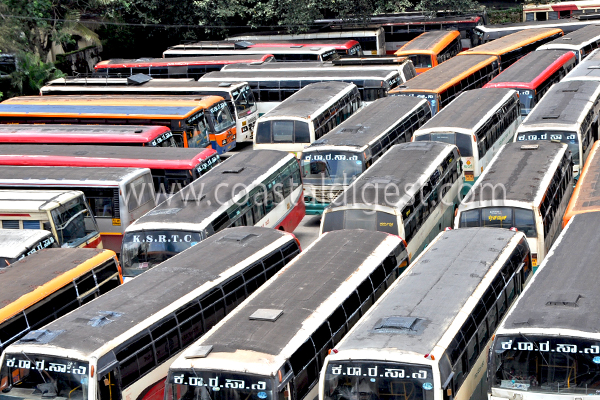
Bus services were hit as transport workers abstained from work in response to a call given by the workers' unions.
Though the strike did not have major impact in Mangalore on Thursday, frustrated workers suddenly resorted to protest on Friday. Till around 10 a.m. most of the buses proceeded as per schedule to various destinations, said KSRTC Mangalore Divisional Controller M. Mahesh, adding that among those were city bus, shuttle and Volvo bus service.
However, all of a sudden dozens of workers abstained from work and plunged into strike.
Around 225 KSRTC buses depart from Mangalore every day and around same number of buses arrive at KSRTC bus stand. However the strike paralysed most of the services.
The passengers travelling to places like Bangalore, Mysore and Hubli relied on trains to reach their destinations. The strike had left the local railway station grappling with influx of commuters.
In the temple-town of Udupi hundreds of passengers were inconvenienced. Long-distance passengers were a harried lot as most of the buses either did not turn up or turned up late at Bus Stand.
As many as 210 State Transport buses pass through Udupi every day. According to three Traffic Controllers at the KSRTC Bus Stand here, over 20 buses from Hubli, Chikmagalur and Dharmasthala did not arrive at Udupi. Daytime buses to areas such as Chamarajnagar, Yellapur, Karwar, Hubli, Dandeli, Mysore, had not arrived in Udupi.
Schoolchildren and office-goers were also inconvenienced because of the strike. In some rural areas of the coastal districts students with bus pass returned home and very few travelled by private buses. Many passengers from rural areas who were unaware of the strike were found waiting for KSRTC buses in bus stands.
Baton Charge
Police resorted to mild baton charge as a group of agitating KSRTC employees staged protest when hired private buses started to enter bus stand to pick up stranded passengers.
However the situation came under control within half an hour. Following the incident tight police security was deployed in the bus stand.
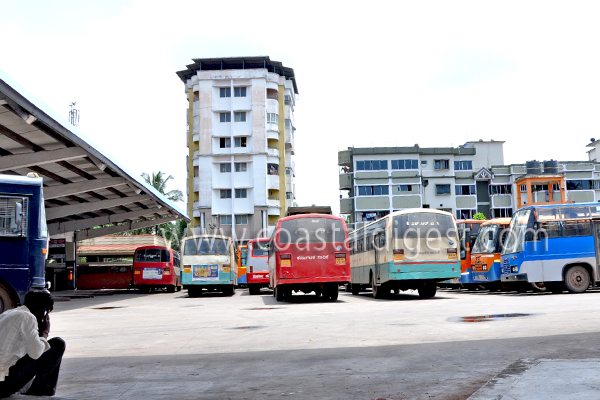
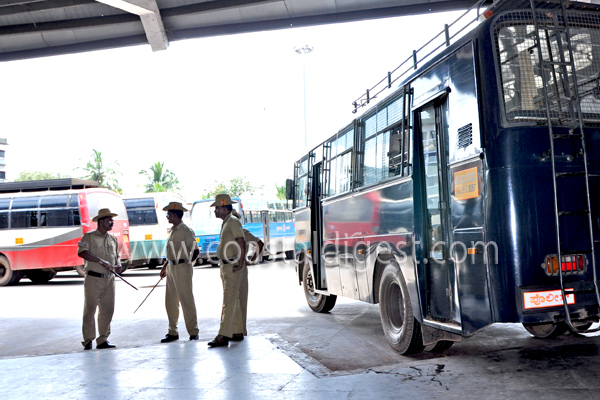
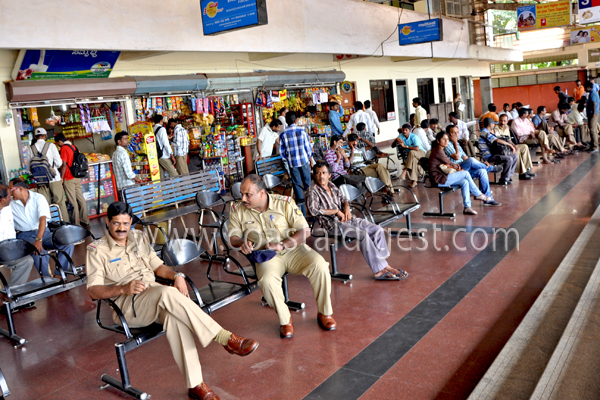
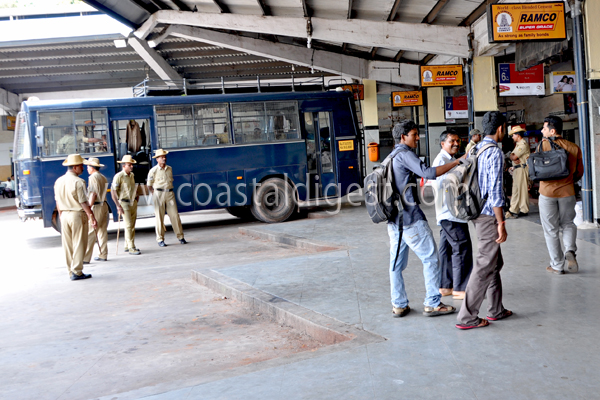
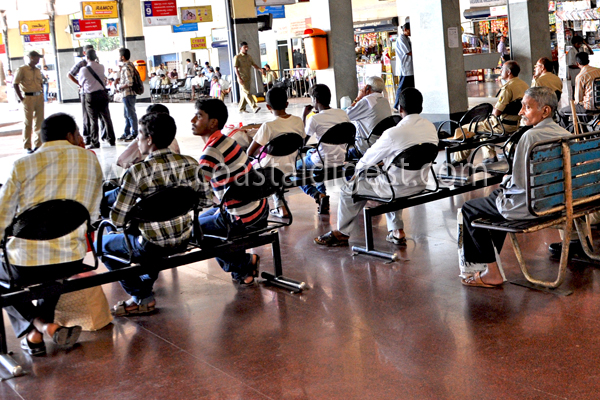
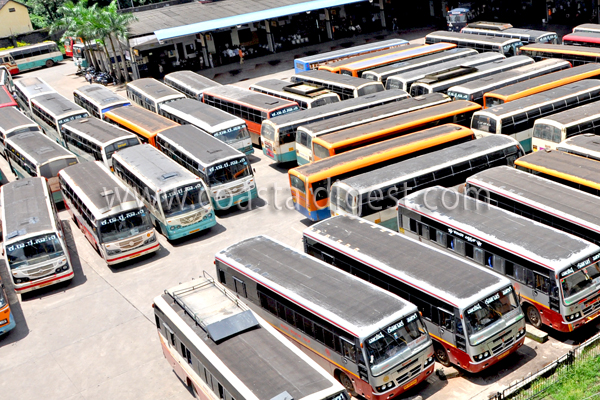
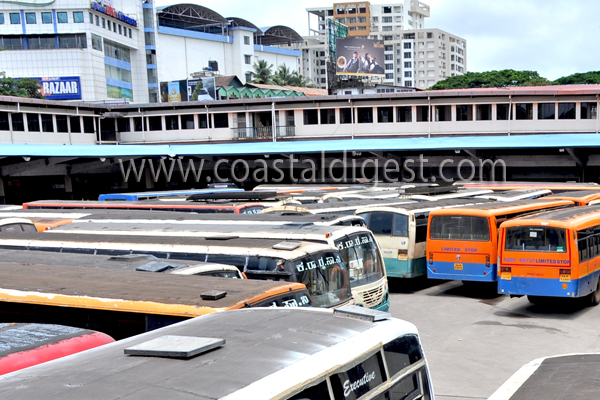
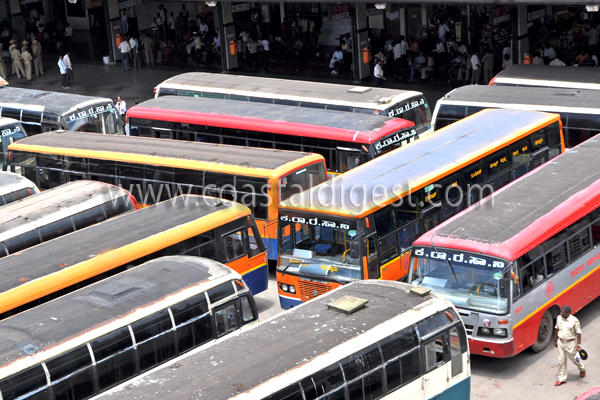






Comments
Add new comment